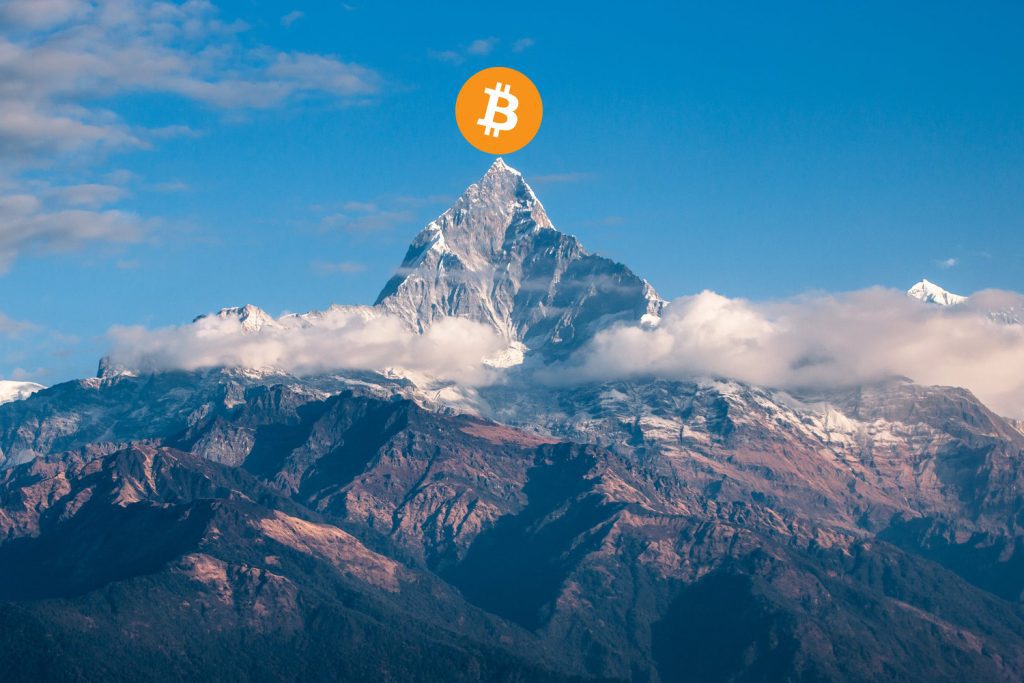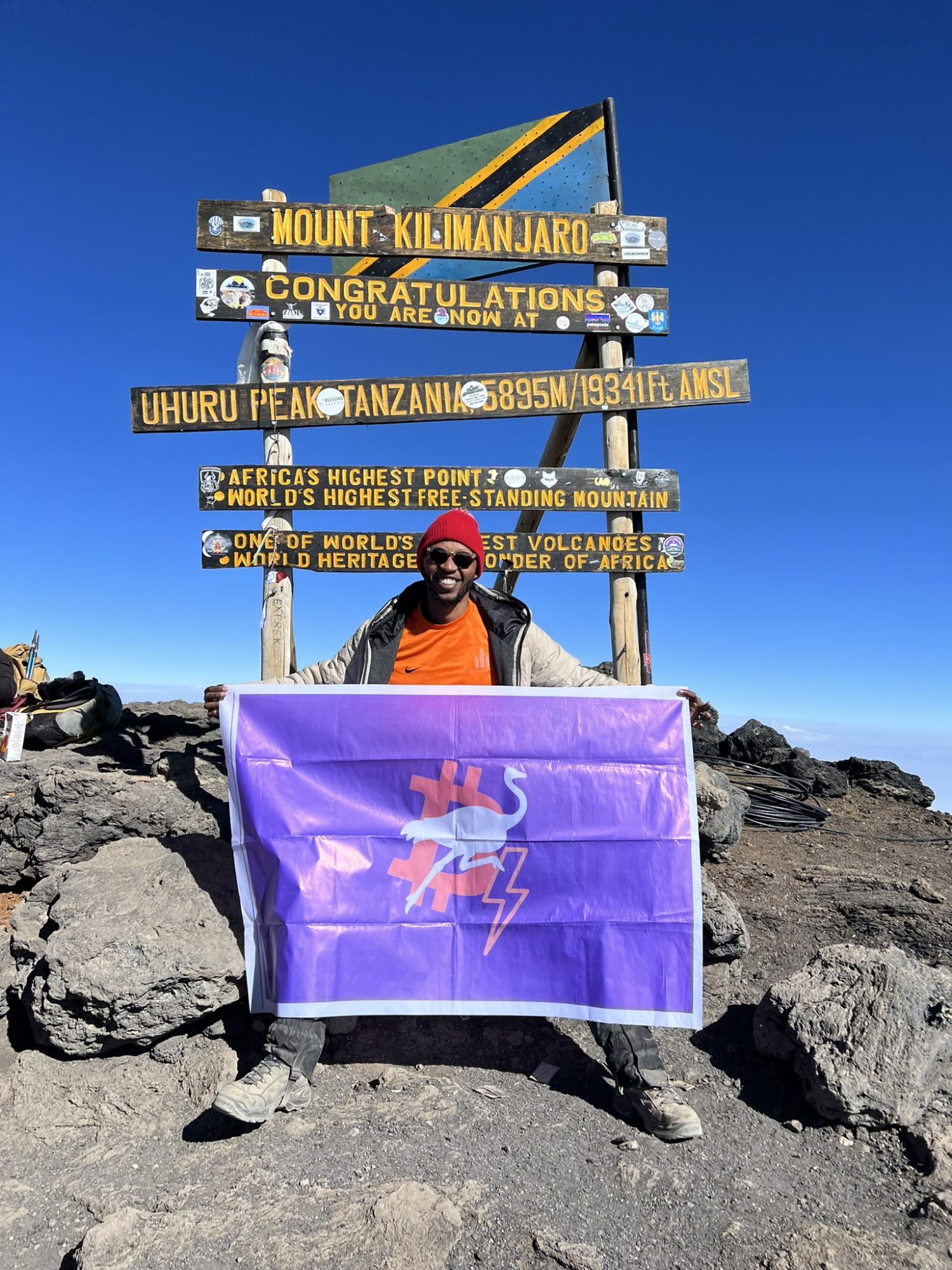
A Bitcoin educator living in Tanzania has climbed Africa’s highest mountain, Kilimanjaro, entirely funded by Bitcoin and Nostr donations. Kweks (not his real name) raised nearly $1,700 in Bitcoin (0.0018 BTC) from the public to pay the costs of the hike, which also served as an announcement for a new Bitcoin teaching institution in Tanzania.
The “Proof of Work Academy”
Kweks and his wife recently relocated to a new city in Tanzania to establish the “Proof of Work Academy,” or POWA. While POWA is a play on Bitcoin’s consensus system, proof-of-work, it also relates to the Zwahili word “Poah,” which means fresh or cool, according to Kweks.
Kweks funded the ascent to nearly 6,000 metres in satoshis or sats, the smallest denomination of Bitcoin equal to 100 millionth of 1 BTC, to promote the new school and subtly hint at his affinity for decentralised protocols such as Bitcoin and Nostr (notes and other stuff transmitted by relay).
Bitcoin Lightning Network donations poured in from all around the world via Geyser Fund crowdsourcing and Zapraising, which is Bitcoin Lightning Network crowdfunding via Nostr (also known as Zaps.) Throughout the multiday journey, Kweks carried and waved a massive Nostr banner while sending status updates on X, Nostr, and WhatsApp. Speaking to Cointelegraph from Tanzania, Kweks noted that while the money donated was significant to pay the costs of the climb, the impact was largely educational:
“I thought it [the ascent] would be a great case study to show what Bitcoin can do and then introduce some people to Bitcoin as well.”
Bitcoin in Tanzania
The summit revealed to his local community that a global network of Nostriches (Nostr users) and generous Bitcoin proponents were eager to assist Kweks’ climb and educational activities in Tanzania. Furthermore, Kweks received a tip from one of the guides guiding the group to the peak of “Kili,” as it’s known locally, demonstrating that Bitcoin is being used at the grassroots level in Tanzania.
There is clearly some awareness of Bitcoin in Tanzania, according to Kweks, but one of the major issues is off-ramps into local money. Because Coinbase, Kraken, and Gemini do not function in Tanzania, exchanging cash for Bitcoin and vice versa might be difficult.Throughout the journey, Tanzanians approached Kweks with inquiries and remarks about how he funded the expedition, as well as the inevitable inquiry, “What is Bitcoin?”
Finally, Bitcoin acceptance in Tanzania differs greatly from that in the United Kingdom, where Kweks spent the previous 25 years of his life before migrating to Tanzania.In East Africa, he continues, there is more of a barter system in existence. It can be difficult to explain money and hyperinflation, as well as why a currency with a predetermined inflation rate, such as Bitcoin, could provide society with an alternative economic structure.
“When I arrived in Tanzania ten years ago, $1 was 1,500 hundred Tanzanian shillings. As of today, [$1 equals] 2,600. That’s ten years later. It’s crazy!”
Finally, using concepts that people understand is the key to unlocking Bitcoin education: “I do speak to them about how much bread is going up and how much fuel is going up, and they understand that,” Kweks remarked.
“They see that it’s harder to make ends meet. So with these concepts, they understand that Bitcoin the tool can help them — and that’s the work. That’s the work that needs to be shared and explored.”
Kweks continues to upload and exchange educational information on Nostr and X, while POWA provides free educational sessions to Tanzanians living around Kilimanjaro.

